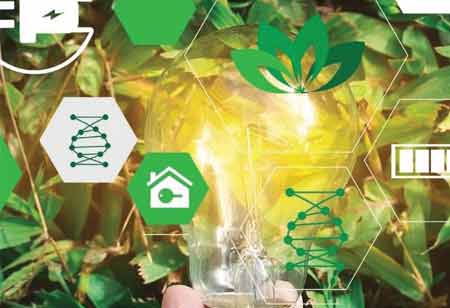

I agree We use cookies on this website to enhance your user experience. By clicking any link on this page you are giving your consent for us to set cookies. More info
Thank you for Subscribing to Business Management Review Weekly Brief

Nowadays, it is more common to witness that corporate sustainability and procurement are in the same organization of corporation. When I first joined the FMCG industry from the automobile business, sustainability was already becoming the center of the whole business, requiring a lot of attention from all corporate leaders. There are many good reasons why sustainability matters for businesses, and private sectors are already stepping up with an ambition of net zero in their strategy. Sustainability is a hot topic everywhere.
Despite huge attention from corporations, it still sounds like a luxurious thing to have something sustainable. Talking about the logistics industry that I am in charge of for the company I work for, it is evident that EV trucks require far more investment commitment than diesel trucks. The same goes for LEAD warehouses compared to conventional warehouses. Therefore, procurement teams are highly involved in rounds of discussions to bring the cost down with their expertise for this kind of luxury.
Nevertheless, if the government and public sector are not as aggressive as individual/private companies in getting things done for this 'luxury,' it will be incredibly difficult to find the right investment model as it requires significant investment for intangible profit and value of uncertainty without any sizable subsidy program.
Using recycled PP for an endless cycle of buying and selling plastics is far better than cutting wood from developing nations and disposing with fire to create new CO2
Instead of showcasing an EV truck (a type of platinum sustainability investment from business), of which the electricity actually comes from the coal power plant in reality, thinking about how to reduce the trucking distance absolutely makes sense for us. Regarding warehouse footprint, it would be perfect if we could move our distributor center near customers to achieve shorter trucking distances. In fact, it is extremely tough to move the warehouse as it can easily disrupt our operation, and the warehouse contract is normally established in the long term. Instead, as an export/import-driven company, changing the port of import/export can bring about a considerably positive impact on trucking distance reduction without taking too much risk.
In addition to reducing distance, it caught our eye that tackling carbon intensity was also very important for this type of easy win. Converting from a truck/container that ships 40 pallets into one for 50 pallets can naturally reduce carbon intensity by 25 percent.
The final example is about 'think out of the box.' Analyzing chunks of spending on logistics materials, such as pallets, the company I work for has been using wooden pallets, and many people tend to think that wood is more sustainability-friendly than plastic. That only makes sense if we create plastic waste in every delivery from vendors. One thing that gives plastic an edge over wood is that plastic is recyclable. Using recycled PP for an endless cycle of buying and selling plastics is far better than cutting wood from developing nations and disposing of it with fire to create new CO2. It was just important for us to guarantee using globally certified recycled PP for the project.
Speculating over these three examples of what we did for carbon reduction for the supply chain and logistic area, it didn’t require any type of huge investment that comes with a long-term contract for justifying ROI. In addition, all these examples were actually leading to huge savings in logistics costs for the business. Finally, sustainability comes easily if we look at the business structure from a macro perspective. In the end, 'net zero' will always be followed by these kinds of innovations for the business.